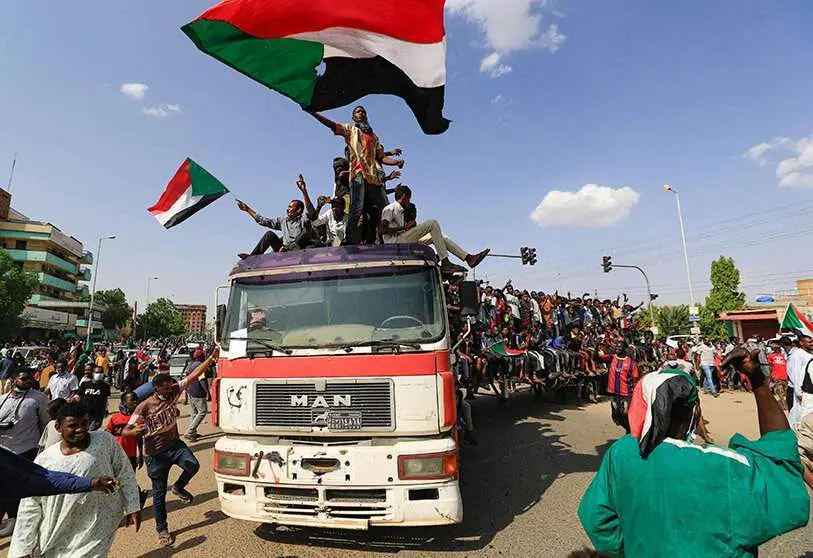New protests in Sudan leave at least 6 people dead

At least six people have been killed in Sudan in a violent crackdown on demonstrators marching against the military government that has led the country since the coup staged by the military wing led by General Abdel Fattah al-Burhan last October.
During the demonstrations in central Khartoum, security forces fired tear gas at protesters and used water cannons to try to hold back the crowds heading towards the presidential palace, according to witnesses.
The demonstrations in Khartoum, as well as in the cities of Omdurman and Bahrin, are estimated to have been attended by tens of thousands of people. According to witnesses in the area, these were the largest rallies this year. In the town of Omdurman, there were also reports of gunfire and tear gas being used, which the UN has denounced.

UN spokesman Stephane Dujarric said he was concerned "about the continued use of excessive force by government security forces in Sudan as they respond to protests, and especially what we have seen today".
He stressed that "it is imperative that people be allowed to express themselves freely and peacefully, and that the security forces of any country must be there to protect people's right to do so, not to obstruct it".
He went on to stress the importance of "all parties reaching an inclusive political solution as soon as possible, leading to a return to constitutional order and democratic transitions".

These latest protests have marked the third anniversary of the mass demonstrations that succeeded in toppling the former dictator, Omar al-Bashir, and led to a period of transition in which attempts were made to divide political power between civilian and military factions, led at the time by former minister, Abdullah Hamdok.
It is three years since the overthrow of al-Bashir. Since then, Sudan's political process has not been entirely stable. At first, the appointment of Hamdok as prime minister gave the Sudanese people some hope that for the first time in the country's history democratic elections could be held. However, the military uprising carried out by al-Burhan and the arrest of several opposition leaders frustrated the transition process that could lead to elections.

In these new demonstrations, some protesters carried banners demanding justice for the dead who had been killed during the protests. Others continued to protest against the military government, shouting "Burhan, Burhan, back to the barracks and hand over your businesses", a reference to the economic holdings that the Sudanese army would have.
For the first time in months of protests against the military uprising since the coup was executed, telephone and internet services were severely cut. After the military seizure of power, electricity blackouts were imposed in an attempt to curb demonstrations and dissent. Telecommunications operators told Arab News that the authorities had ordered them to cut internet connections once again on Thursday.
Similarly, telephone calls in Sudan were blocked and security forces closed several bridges connecting the Nile River to Khartoum, Omdurman and Bahri, a usual cut-off when mass protests take place in the country. There have also been several protests in many neighbourhoods in recent days.

According to health services, a child was reportedly shot dead by security forces during the demonstrations. In addition, the four deaths in the Omdurman protests brought the total number of protesters reportedly killed since the coup was carried out to 107. They also report a large number of injuries and attempts by the authorities to storm hospitals in Khartoum, where medical services were being provided to several injured protesters, according to the Central Committee of Sudanese Doctors.
For his part, the UN envoy to Sudan, Volker Perthes, called on the Sudanese authorities to commit to their pledge to protect the right to peaceful assembly and warned that "violence against demonstrators will not be tolerated".
To these statements, al-Burhan responded that the army was "looking forward to the day when an elected government can take over". However, he reiterated that this could only be achieved through a consensus reached at the ballot box, not protests.








